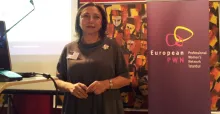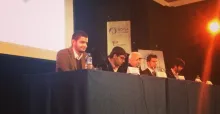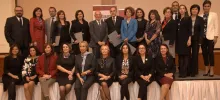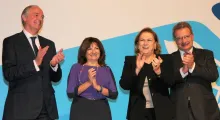25/11/2013
Sabancı University Corporate Governance Forum and Independent Woman Directors Project Director Melsa Ararat spoke on the project at the launch meeting of the European Professional Women’s Network on Wednesday, November 20, 2013.
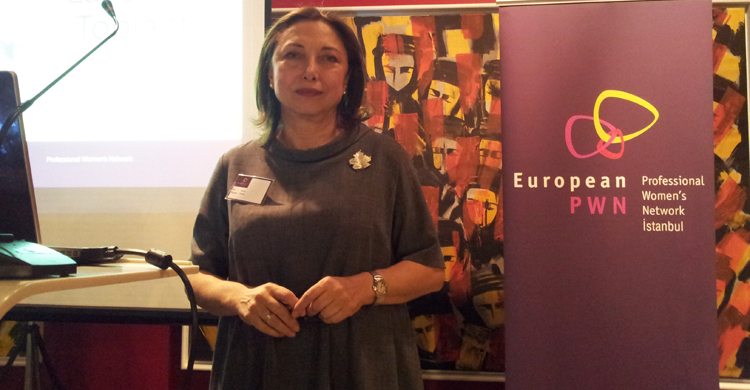
Sabancı University Corporate Governance Forum and Independent Woman Directors Project Director Melsa Ararat spoke on the “Independent Woman Directors Project” implemented with financial support by the Consulate of Sweden and strategic support of Egon Zehnder International’s Turkey office at the launch meeting of the European Professional Women’s Network.
The launch meeting was held at The Sofa Hotel with the attendance of around 200 woman directors. Melsa Ararat explained the project and spoke about the “Independent Woman Directors Turkey 2013” report.
“Independent Woman Directors Project Report”
According to the results of the survey, which included all Istanbul Stock Exchange companies, the ratio of woman directors on boards did not change much from the 2012 value of 11.5%, and was 11.7% for 2013. According to the report, reaching 25% representation of women on boards will take 44 years at this rate.
The report suggests that while there was no significant change in the ratio of woman directors, the ratio of independent directors in ISE companies increased by 23.5% during the same period and became %7.7, while the ratio of women among independent directors increased from 7.7% to 8.8%. The fact that the ratio of women among independent directors increased while the total number of woman directors remained unchanged points out the effectiveness of the project.
The report warns that 44.5% of ISE companies have no women directors at all. Although the situation is improving, the change from last year is only 4.9%. At this rate, it will take 13 years for all ISE companies to have at least one woman on their boards. Among the companies that have woman directors, 66% have only one woman sitting on the board, while only 0.5% of companies have three woman directors. This is far removed from the threshold of three female members, which international surveys suggest is the minimum for women to be effective on a board of directors.
Among the members of board of directors committees, only 8.5% are women. Audit committees are 8.2% versus 91.8% men, and corporate governance committees have 7% female members with 93% being men.
A comparison of ISE companies in 2008 and 2013 shows that the ratio of woman directors increased from 8.63% to a mere 11.25% from 2008 to 2013.
The objective is to have all boards strengthened by women
The “Independent Woman Directors Project” implemented by the Sabancı University Corporate Governance Forum with financial support by the Consulate of Sweden and strategic support of Egon Zehnder International’s Turkey office aims to improve the position of women on boards of directors with a view towards making boards more efficient. As a founding partner of the “Global Board Ready Women” initiative, the project makes regular updates to a database of board-ready women in Turkey, and recommends candidates to companies that wish to appoint a woman to their boards of directors.
Specific targets of the project by the end of the general assemblies for the 2015 financial year include 25% women on the boards of ISE companies, all companies having at least one woman director, and the strengthening of boards by women.

